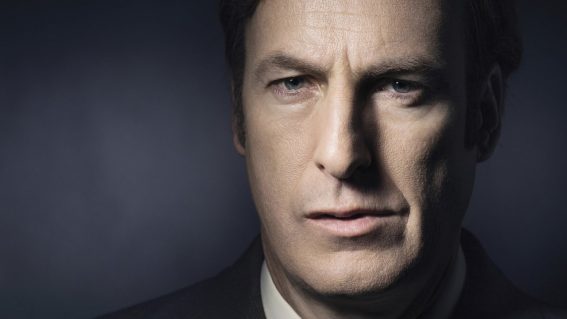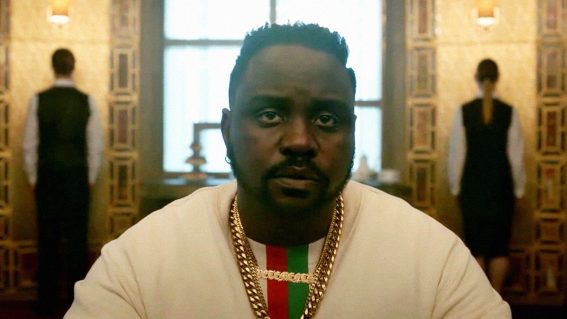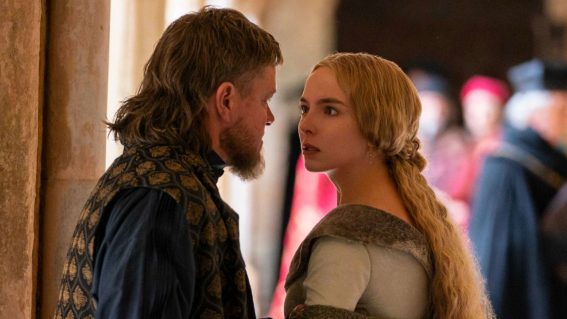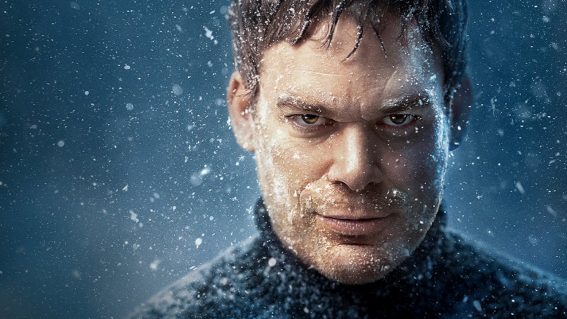The scientific magic of His Dark Materials, and why Season 2 doesn’t disappoint
It’s one of the rare shows that can be watched and enjoyed by all ages.
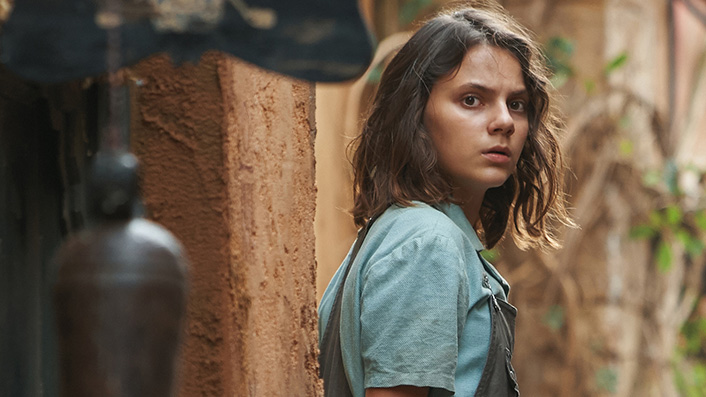
As Season 2 of His Dark Materials begins streaming on Neon, Adam Fresco looks back on the first season of the show and previews what’s to come in this series adaptation of Philip Pullman’s fantasy novels.
Philip Pullman’s trilogy of novels depicts a fully-realised fantasy world, familiar to fans of The Lord of The Rings, The Lion, The Witch and The Wardrobe and Harry Potter. His novels see brave youngsters battle wicked adults while traversing magic portals to worlds in which the laws of physics are no match for magic. The books were written as an atheist antidote to what Pullman regards as the Christian allegories of the likes of Narnia and Middle Earth, but in turning Milton’s Paradise Lost (the tale of Lucifer’s fall from Heaven) on its head, the stories remain so full of magic, angelic, winged humans, flying witches—and even (my favourite character) an armoured, talking polar bear—that no amount of allegorical revisionism can take away from the rollicking adventure of kids fighting alongside the righteous to bring down the baddies.
See also:
* New release movies & series on Neon
* Everything coming to Neon this month
The first eight-episode season of His Dark Materials introduced young heroine Lyra Belacqua—feisty, independent, intelligent, and played by a perfectly cast Dafne Keen, who exhibits none of the stagey, school acting many young characters elsewhere suffer from. In an alternate version of England’s Oxford University, Lyra is raised by her uncle Lord Asriel, played by a manic and mysterious James McAvoy, doing his best “mad-scientist-with-a-heart” portrayal since his energised turn in Victor Frankenstein. Asriel is a scientist and explorer who is researching “Dust”, a sort of aurora borealis (Northern Lights) to be found in the polar region. Lyra’s uncle is convinced there’s more to Dust than just pretty colours in the sky. This amounts to heretical thinking as far as the strict, ruling religious sect “The Magisterium” is concerned.
“Dust” isn’t all that hints at magic in this alternate Earth. Lyra’s accompanied by Pantalaimon, or Pan for short, a shape-shifting “dæmon”. Like all children’s’ dæmons in Lyra’s world, Pan can assume any form, from a moth to an eagle, but he mostly appears in the guise of a stoat. Adults’ dæmons stay in one form, and there are plenty of clues as to who’s good or bad, judging by whether their dæmon is cuddly and cute, winged and wise, or a slithering snake or creepy-crawly.
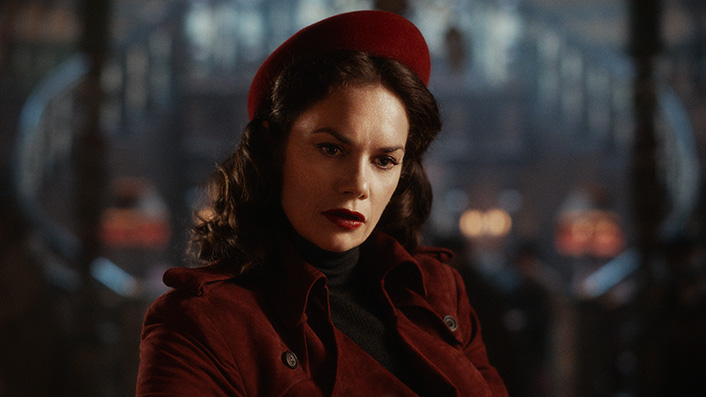
The adventure kicks off with Lyra being gifted an “aleithiometer”, a sort of magical, golden compass that has great powers for those that know how to wield its fortune-telling abilities. When her uncle sets off for the Pole by airship, above a wonderfully realised, steampunk version of Oxford, Lyra is sent to stay with the mysterious Marisa Coulter. A part played with sinister aplomb by Ruth Wilson, in the full-tilt, femme fatale mode, perfectly cast as His Dark Materials’ version of Harry Potter’s Snape—a character whose motives and allegiances are never certain.
Elsewhere we meet the Gyptians, a canal-barge dwelling group of travellers, representing an underclass of outcasts. They fear child-snatching monsters, known as “Gobblers”, and when a young Gyptian disappears they set out to rescue him from the clutches of his mysterious kidnappers.
Following Pullman’s first book in the trilogy (‘Northern Lights’), the first season was a great watch, and certainly worthy of family binge-viewing. As a fan of the source material, I wasn’t disappointed by the casting, plotting, effects, or its detailed realisation of Pullman’s world. The biggest surprise was the casting of Hamilton star and creator Lin-Manuel Miranda as Wild West frontiersman character (and balloonist) Lee Scoresby. Miranda’s Scoresby is a far less gruff and crumpled, more friendly character than Sam Elliott take in 2007’s movie version. Sure, it took some getting used to, but once you accept he’s going in a different direction, it proved easy to warm to Miranda’s more complex take on the aeronaut.
While the movie version had the recognisable voice of Sir Ian McKellen voicing the fighting bear, this television adaptation’s Iorek is voiced by Joe Tandberg, a veteran of Game of Thrones, who invests the wonderfully computer-generated character with a pitch-perfect mix of aggression and regret. For those interested in just how they created this incredible character, you can take a peek behind the scenes, with Framestore’s Russell Dodgson demonstrating the bare necessities of bringing Iorek to CGI life.
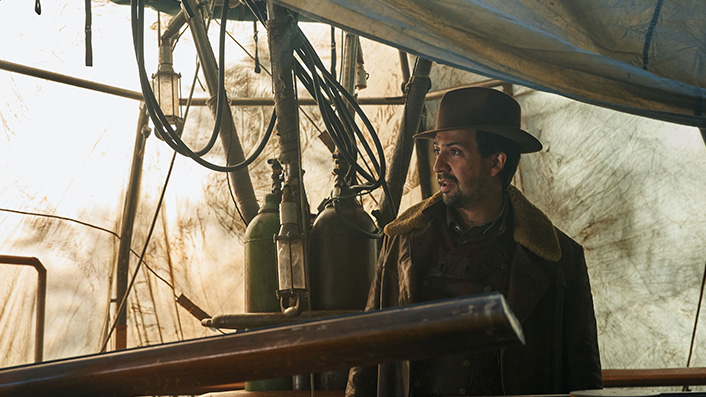
With the first two episodes of season one directed by Tom Hooper (The King’s Speech, Les Misérables and, um, Cats), the visuals are first-rate. As with any book you love making the transition to the screen, there are of course decisions in casting and changes to plotting readers will take issue with. Nonetheless, a few pacing issues aside early on, and a rather slow start necessitated by introducing characters and their worlds, season one soon picked up speed, and fast became a must-watch in my house—one of the rare shows that could be watched and enjoyed by all, from kids to teens, to adults alike. It may add to your pleasure (or displeasure) if you have read the books, but coming fresh to Pullman’s world is just as easy, thanks to excellent scripts, casting, and top-notch visuals.
Season Two does not disappoint, diving into Pullman’s second book in the trilogy, ‘The Subtle Knife’, it deftly picks up the plot, adding new characters and cast, including Terence Stamp as Giacomo Paradisi, Oliver Monaghan and I-Kay Agu as angels Brauch and Bathamos, and Fleabag’s Phoebe-Waller Bridge providing the voice for the dæmon belonging to explorer Colonel John Parry (Fleabag’s Hot Priest himself, actor Andrew Scott). This second foray into the Northern Lights wastes no time in throwing viewers back into Pullman’s world of airships, armoured bears, science, magic, and the malevolent Magisterium.
By green-lighting season two early on, producers HBO and the BBC have ensured its stars, Dafne Keen as Lyra and Amir Wilson as Will Parry, have not aged too far beyond their first season portrayals. Avoiding any other between season sudden jolts, the original cast return, although filming during a pandemic limited this second season to seven episodes, with less James McAvoy for your money. However, it has been reported that the planned Lord Asriel solo episode may still reach our screens.
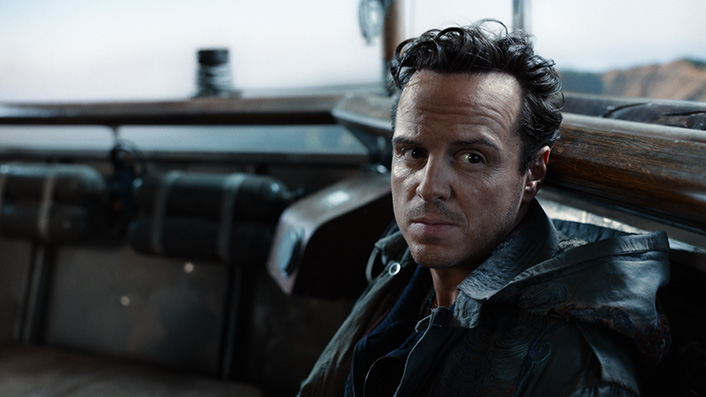
There is plenty of mystery, adventure, and magic, as we reunite with old friends, meet new foes, and follow our heroes, Lyra, and Will, to the eerily empty city of Cittàgazze. The first episode of season two, titled ‘The City of Magpies’, begins by setting the stage. The familiar voice of a witch states: “Lord Asriel has torn up our sky and left the world in chaos.” The witches believe it is the start of a powerful prophecy, in which Lyra (who took the name “Silvertongue” in season one), may be key to preventing the destruction of all that exists.
Where the first season pivoted on the revelation that Lord Asriel and Marisa Coulter were, in fact, Lyra’s parents, this second chapter kicks off by shifting the focus firmly to Pullman’s key themes of faith versus fact, and science versus spirituality. However, the answer is no simple black-and-white, science-is-good-religion-is-bad morality. Rather, reflecting the novels on which it is based, the narrative quickly introduces Lyra to Will’s version of Oxford in our all too recognisable world. Here, instead of “Dust” and dæmons, witches and magic, Lyra’s aleithiometer introduces her to Mary Malone, an Oxford physicist studying dark matter—the vast expanse of unknown blackness between everything in the universe. In other words, the very same “Dust” Lyra is seeking to find out more about.
Meanwhile, Lyra’s mother, Mrs Coulter, is still hunting both Lyra and Lord Asriel for reasons of her own. Keeping her cards close to her chest, Mrs Coulter winds the Magisterium’s leading cardinals around her little finger, playing them off against one another, and exerting her will. And it is a very powerful will indeed, as we find out in episode two, ‘The Cave’, in a scene where she tortures a witch, using little more than tweezers and a cruel smile to find out why the witches hold Lyra in such high regard.
As with season one, the pace is slow and many scenes are heavy with expositional dialogue, but there is plenty to think on. The Magisterium, in their refusal to acknowledge the existence of other worlds and the portals between them, seek to keep the populace ignorant of the multiverse of myriad worlds to be explored whilst sending their agents to those self-same worlds to prevent the truth being revealed and their power threatened.
Meanwhile, the at-first seemingly heroic Lord Asriel has shown himself willing to sacrifice a child so as to open a portal to another world. Why has Will’s father, Colonel Parry, left his son and wife to go exploring? Can these seemingly callously indifferent men of science really be Lyra and Will’s fathers? Can science exist in a world of pure discovery, divorced from morality and ethics? If religion or spirituality are rejected in favour of pure scientific insight, are we doomed to repeat the revelation of Robert Oppenheimer, father of the Atomic Bomb, who reflected on the 1945 bombings of Hiroshima and Nagasaki by quoting the ‘Bhagavad Gita’: “Now I am become Death, the destroyer of worlds.”
It is not easy to tackle such big questions in a family adventure fantasy, but the series does great justice to Pullman’s books by making the argument not a simple choice between religious faith and scientific fact, but an examination of how humanity seeks both knowledge and spirituality, science and morality, and that not everything “real” or important to us can be measured, recorded, studied, prodded or dissected.
As for how Lyra’s discoveries about the nature and properties of Dust will play out, how The Magisterium will try to thwart our heroes, and whether certain characters crossing between worlds will have catastrophic consequences, you will just have to tune in to see this top tier family fantasy treat.









